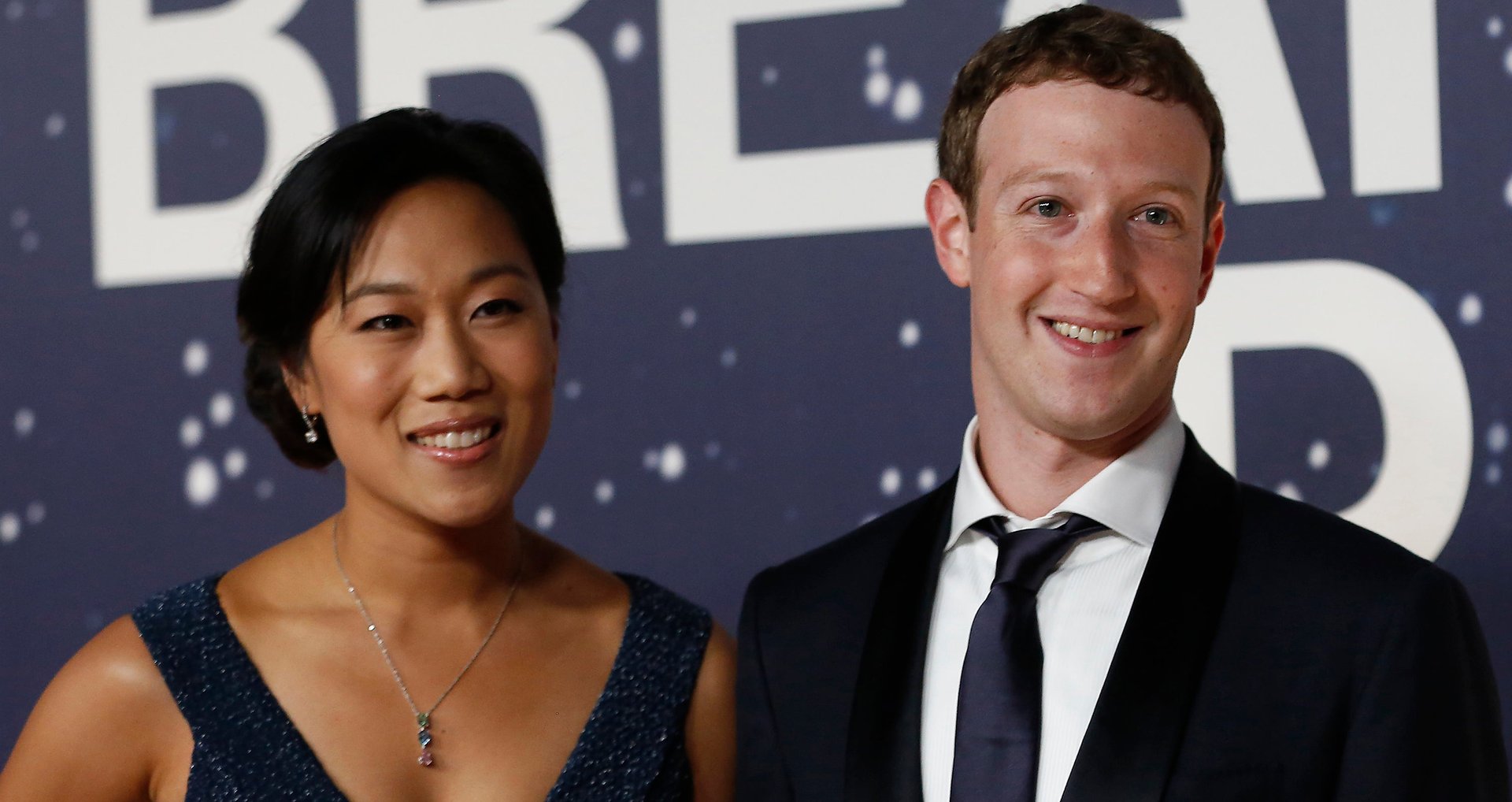Mark Zuckerberg’s donation is a perfect model for how anyone can change the world
Mark Zuckerberg and his partner Priscilla Chan announced yesterday (Dec. 1) that over the course of their lifetime they will donate 99% of their Facebook shares, currently valued at $45 billion, to their newly formed charitable foundation, the Chan Zuckerberg Initiative.


Mark Zuckerberg and his partner Priscilla Chan announced yesterday (Dec. 1) that over the course of their lifetime they will donate 99% of their Facebook shares, currently valued at $45 billion, to their newly formed charitable foundation, the Chan Zuckerberg Initiative.
It is common—especially in the current era of online media “hot takes”—to try to find a contrarian angle on the news to attract attention. In this instance, however, pundits may find it difficult to identify good grounds for skepticism. This is quite simply tremendous news for the world.
Yes, $45 billion a huge sum of money that will fund valuable research and provide opportunities to people in poverty. But just as importantly, decisions like this one are making it more and more fashionable for billionaires to dedicate their wealth to improving the lives of others instead of wasting it on expensive houses and luxurious yachts. I think we can expect more similar announcements in the future.
This quote from Mark and Priscilla’s open letter to their newborn daughter perfectly captures the ethical spirit behind effective altruism, a social movement I have been helping launch that uses evidence to determine the most effective ways to improve the world:
We will do our part to make this happen, not only because we love you, but also because we have a moral responsibility to all children in the next generation.
We believe all lives have equal value, and that includes the many more people who will live in future generations than live today. Our society has an obligation to invest now to improve the lives of all those coming into this world, not just those already here.
But right now, we don’t always collectively direct our resources at the biggest opportunities and problems your generation will face.
Zuckerberg’s story also demonstrates the power of earning to give, an approach to doing good that involves pursuing a lucrative career with the goal of donating most of the earnings to cost-effective charities.
An organization at Oxford that I co-founded, 80,000 Hours, does research to identify the career paths that allow talented young people to improve the world in the biggest way possible. You might expect a group like ours to steer young people towards careers like teaching or medicine, and indeed those are both careers in which one can help a significant number of people. However, in our coaching sessions 80,000 Hours does not recommend either of these paths to many people.
Instead, we suggest those looking to have the biggest social impact possible consider careers like tech entrepreneurship. Entrepreneurs not only invent new products—such as Gmail or Skype—that improve the lives of many; when successful, they make a lot of money, which can in turn be donated to charities helping those most in need. Earning a lot to give a lot: it sounds simple, because it is.
We know this system can work. The Bill and Melinda Gates Foundation has already given close to $30 billion away so far. Because they have put much of it into highly effective interventions such as basic vaccinations and improved healthcare in the developing world, they have saved–by many oft-cited statistics—about six million lives. That’s the equivalent of preventing the death of every single person in my native Scotland.
If the Chan Zuckerberg Initiative sticks with the Gates’ Foundation guiding principle that “all lives have equal value,” they too can hope to have a similar extraordinary impact.
And if more talented young people follow their example, it will go a long way to solving the problems remaining in the world.